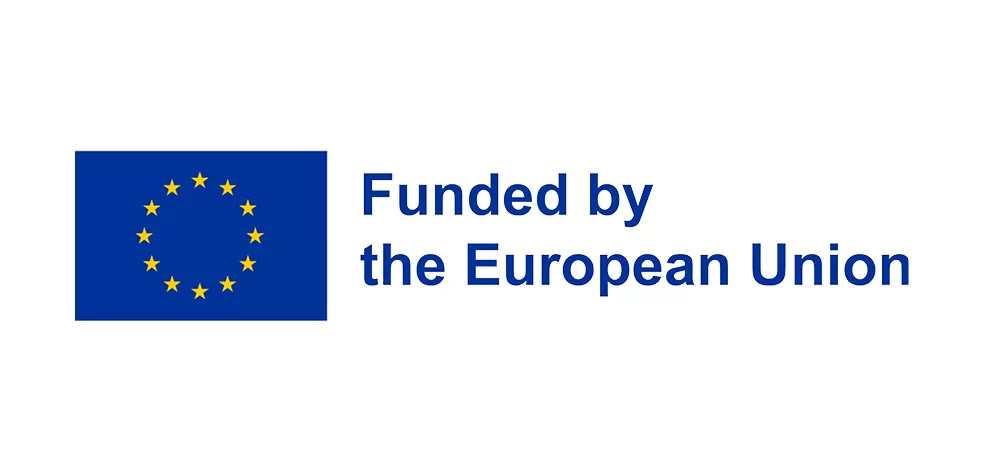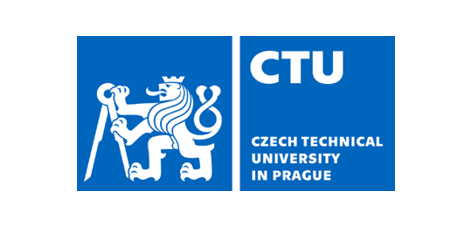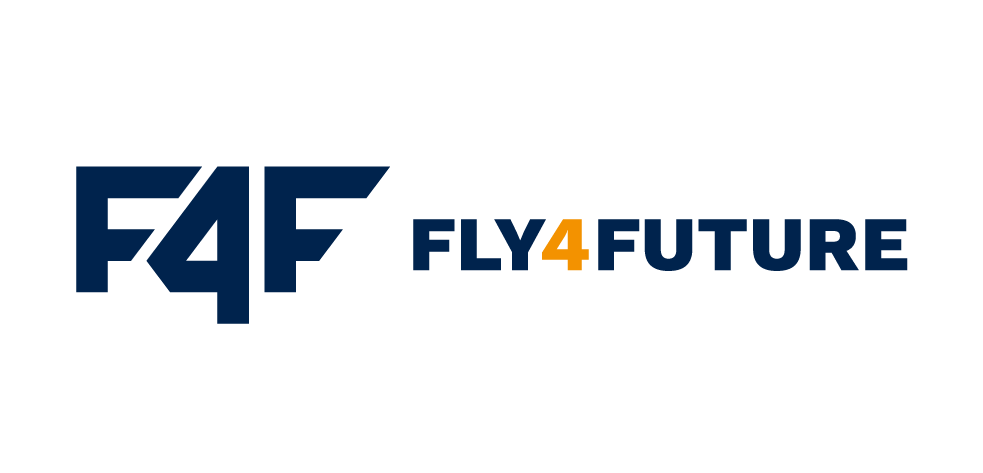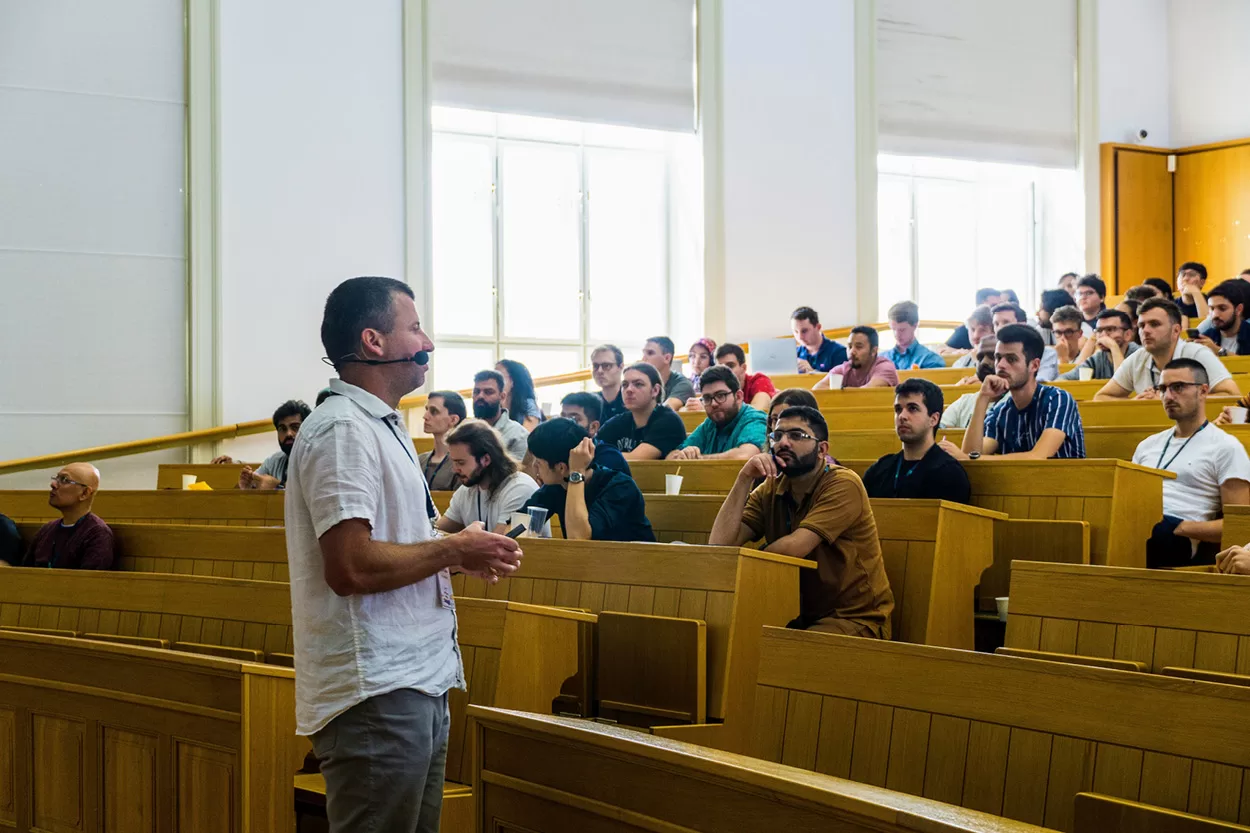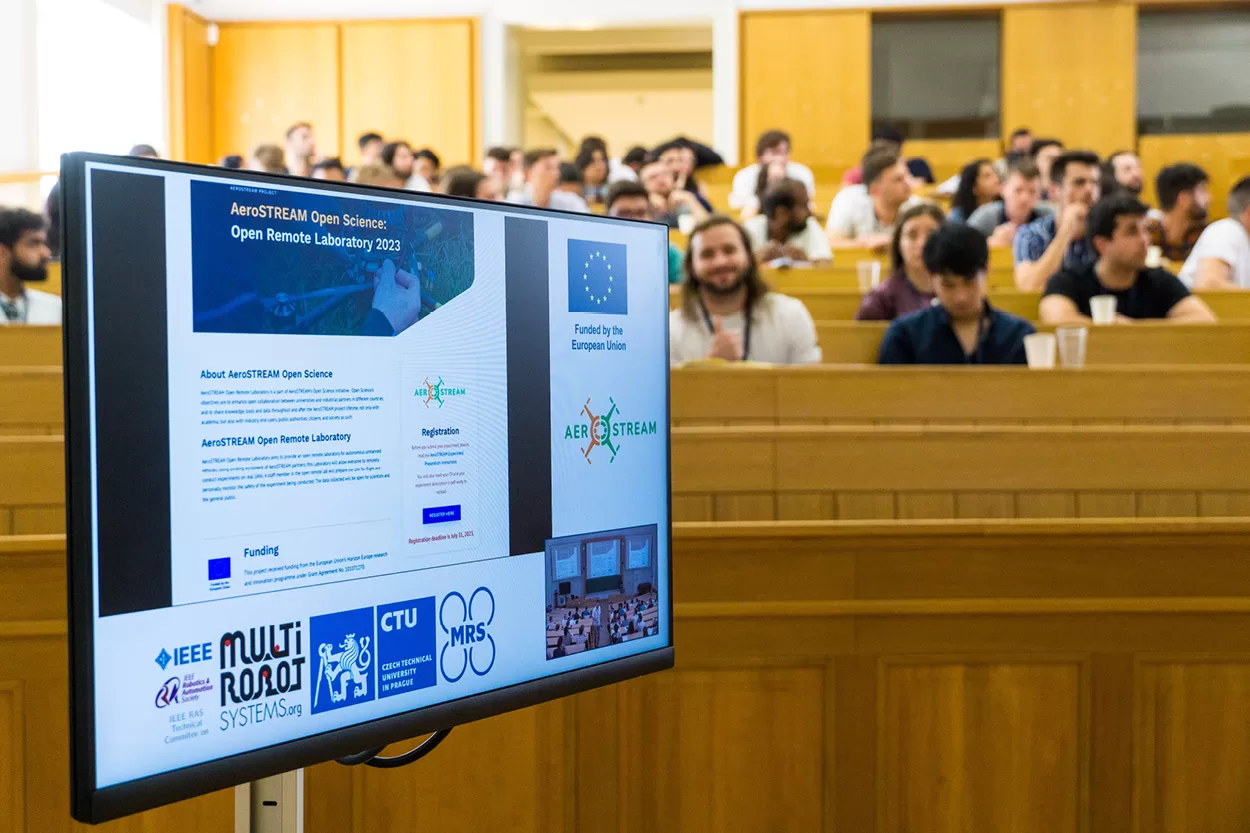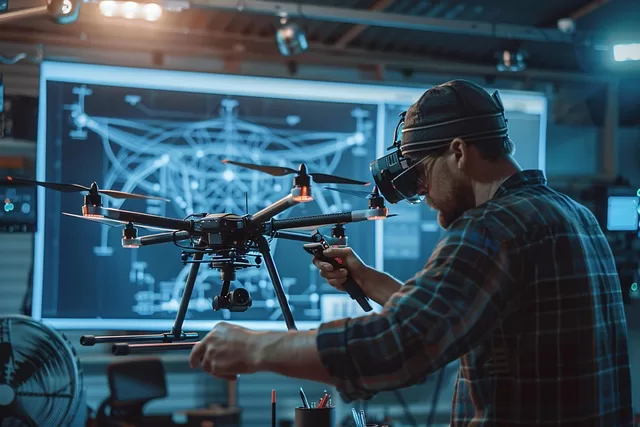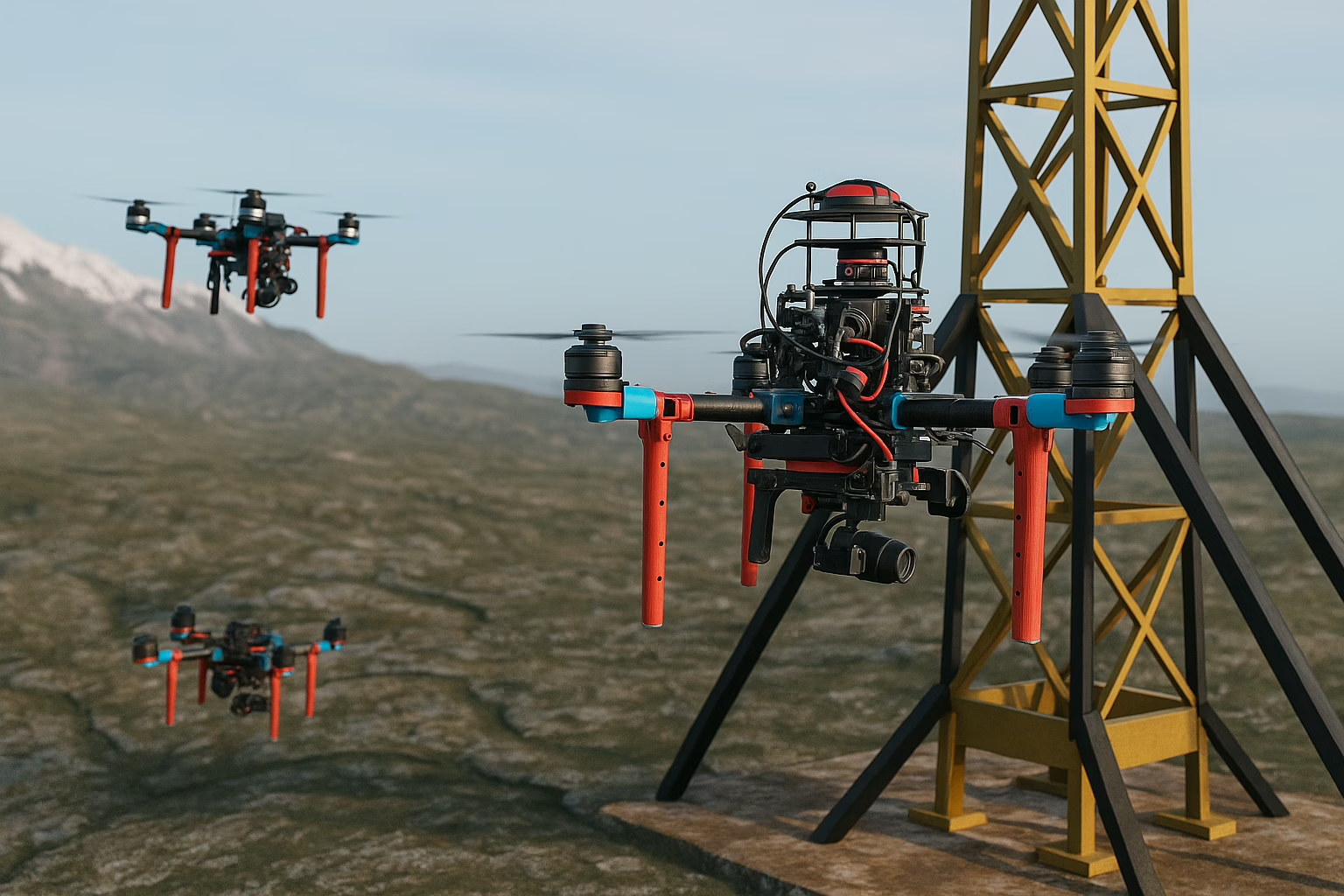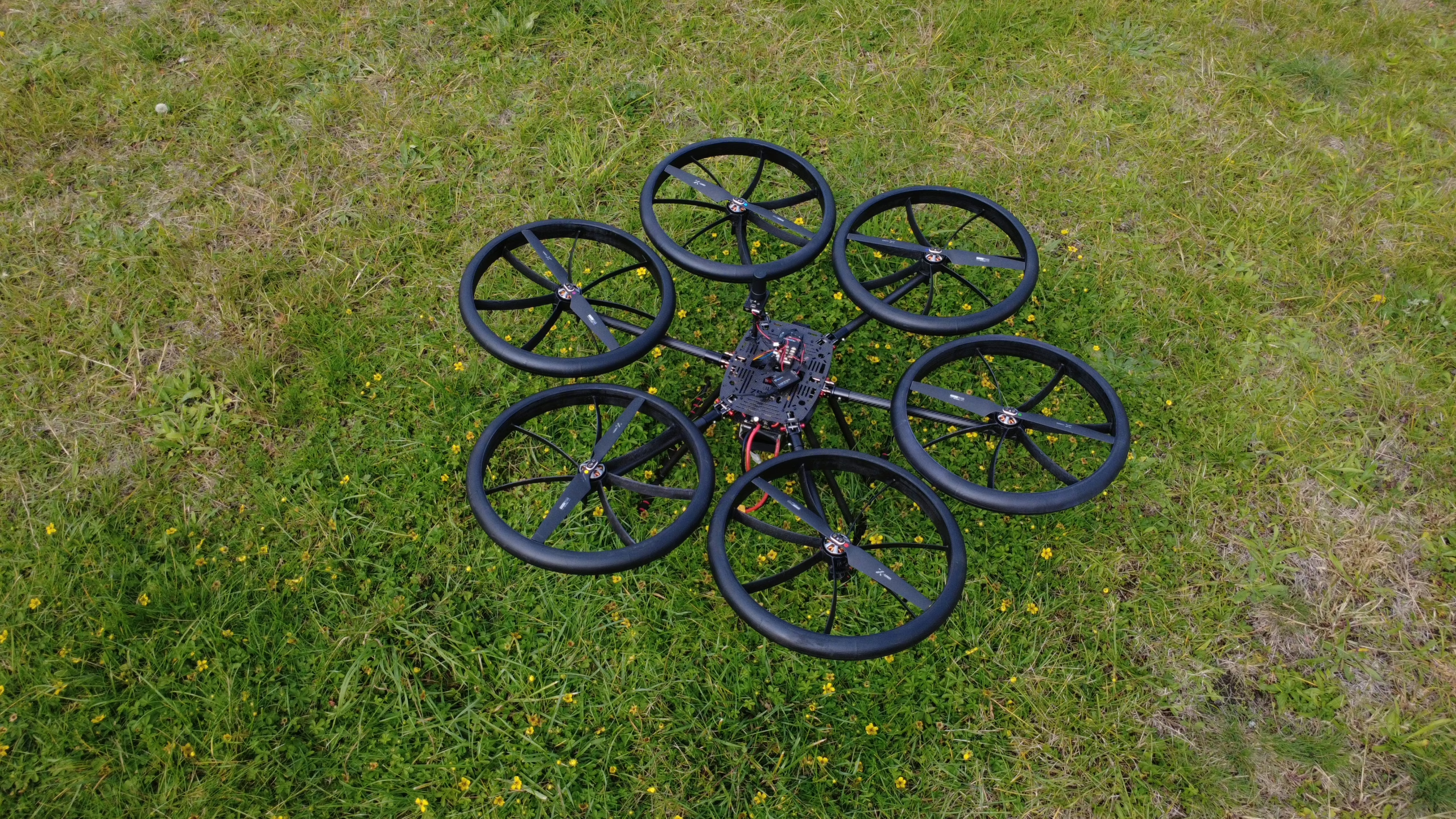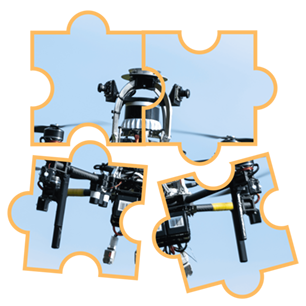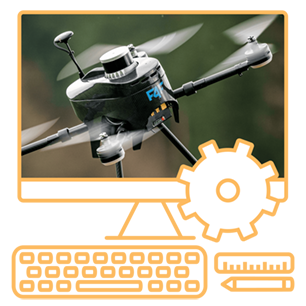Project Activity
AeroSTREAM Summer School 2022
August 1-4, 2022, Prague, Czech Republic
About
AeroSTREAM Summer School 2022
The first AeroSTREAM Summer School was held in early August 2022 and brought together a great team of students and academic researchers. This collaborative event created a truly inspiring environment where new learning opportunities were experienced in a friendly networking atmosphere. The main focus of AeroSTREAM Summer School 2022 was on systems of cooperating aerial vehicles and swarms.
In a comprehensive and effective way, eight lecturers from top European universities provided AeroSTREAM students and researchers with the knowledge, ideas, and experience of the best experts in the field of Multi-Robot Systems. As a follow-up to the lectures, the students got a unique opportunity to implement the learned methodology into a fully functional robotic system under the supervision of the experienced researchers. On each day of the Summer School, an evening social program was organized to provide participants with networking opportunities.
In detail
Practical Information
Venue
AeroSTREAM Summer School 2022 took place at the campus of Czech Technical University in Prague located at Karlovo Náměstí 13, 120 00 Prague 2, building E.
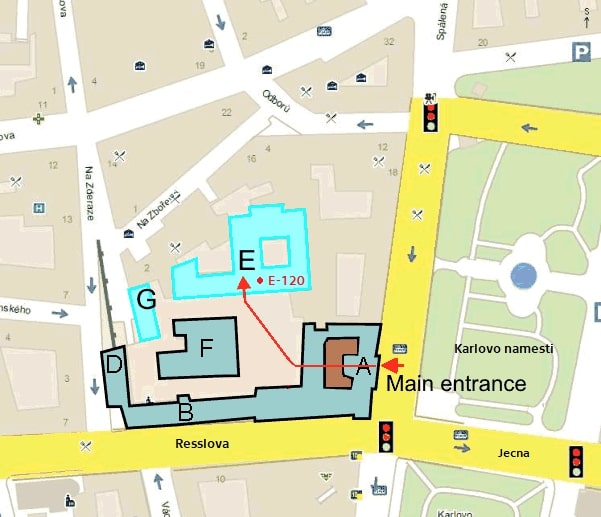
Program
- 08:00-08:45 – Registration (for later coming possible during the day)
- 09:00-09:30 – Martin Saska – welcome and organizational details
- 09:30-10:30 – Aníbal Ollero Baturone part I
- 10:30-11:00 – Coffee Break
- 11:00-12:15 – Aníbal Ollero Baturone part II
- 12:15-13:00 – Lunch
- 13:00-13:30 – Free Time/Networking
- 13:30-14:45 – Martin Saska – Research of groups of aerial robots at CTU in Prague
- 14:45-16:00 – Tomáš Báča – Introduction into MRS system in ROS
- 16:00-16:30 – Coffee break
- 16:30-17:00 – Free Time/Networking
- 17:30-18:45 – Practicals in groups
- 19:00-21:00 – Social program: Welcome drink
- 08:45-09:00 – Registration (for later coming)
- 09:00-10:15 – Vito Trianni part I – Collective Decisions in Robot Swarms
- 10:15-10:45 – Coffee break
- 10:45-12:00 – Vito Trianni part II – Collective Decisions in Robot Swarms
- 12:00-12:45 – Lunch
- 12:45-14:30 – Free Time/Networking
- 14:30-16:00 – Guido de Croon – Autonomous swarms of tiny drones
- 16:00-16:30 – Coffee break
- 16:30-18:00 – Tomáš Svoboda – Robots go deep – multi-robot missions in unknown undergrounds
- 18:30-20:30 – Guided tour in Prague’s Old Town
- 08:45-09:00 – Registration (for later coming)
- 09:00-10:30 – Rachid Alami part I
- 10:30-11:00 – Coffee break
- 11:00-12:15 – Rachid Alami part II
- 12:15-13:30 – Free Time/Networking
- 13:30-14:15 – Lunch
- 14:15-14:45 – Free Time/Networking
- 14:45-15:45 – Lino Marques part I – Basic terms and MRS approaches
- 15:45-16:15 – Coffee break
- 16:15-17:15 – Lino Marques part II – Multi-robot olfactory search
- 17:15-18:45 – Konstantinos Alexis – CERBERUS in the DARPA Subterranean Challenge: A Quest for Resilient Autonomy
- 19:30-22:00 – Banquet
- 08:45-09:00 – Registration (for later coming)
- 09:00-10:30 – Short presentations of students, part I
- 10:30-11:00 – Coffee break
- 11:00-12:30 – Alyssa Pierson – Designing Cooperative Multi-Agent Teams and Socially-Aware Autonomy
- 12:30-13:15 – Lunch
- 13:15-15:00 – Short presentations of students, part II
- 15:00-16:00 – Lab tour
- 16:00-16:30 – Coffee break
- 16:30-17:30 – Free Time/Networking
- 17:30-20:00 – Short presentations of students, part III
Introducing
Lecturers
Learn about the experts in the field of Multi-Robot Systems who gave lectures and shared their knowledge, ideas and experience.
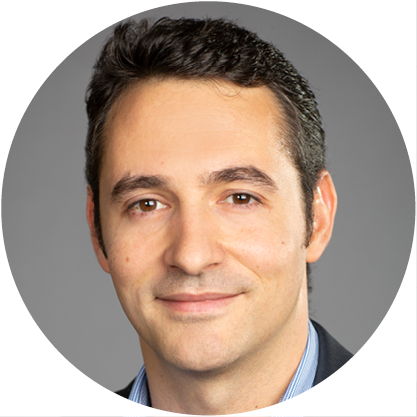
Konstantinos Alexis
Professor at Department of Engineering Cybernetics, Norwegian University of Science and Technology
Kostas Alexis obtained his Ph.D. in the field of aerial robotics control and collaboration from the University of Patras, Greece in 2011. His Ph.D. research was supported by the Greek National-European Commission Excellence scholarship. After successfully defending his Ph.D. thesis, he was awarded a Swiss Government fellowship and moved to Switzerland and ETH Zurich. From 2012 to June 2015 he held the position of Senior Researcher at the Autonomous Systems Lab of ETH Zurich, leading the lab efforts in the fields of control and path planning for advanced navigational and operational autonomy. During summer 2015 he moved to the Computer Science & Engineering Department of the University of Nevada, Reno where he got tenured in 2020. Since Fall 2020 he moved to the Department of Engineering Cybernetics at the Norwegian University of Science and Technology as a Full Professor. He is the founder and director of the Autonomous Robots Lab involving more than 15 researchers and conducting research in the domain of autonomy, perception, planning and control. Dr. Alexis’ research has received multiple awards, includes the world record in unmanned aircraft endurance, and has been funded by a variety of sources including DARPA, NSF, DOE, USDA, NASA, the European Commission, the Norwegian Research Council the private sector and other sources. Notable achievements include the winning performance of Team CERBERUS (with Prof. Alexis being the PI) at the DARPA Subterranean Challenge Finals (September 2021), and the world-endurance record in the below 50kg UAV-class with the 81.5h of the solar-powered AtlantikSolar co-developed by Dr. Alexis and colleagues at ETH Zurich.

Rachid Alami
CNRS Senior Scientist, Laboratory of Analysis and Architecture of Systems (LAAS)
Dr. Rachid Alami is Senior Scientist at LAAS-CNRS. He received an engineer diploma in computer science in 1978 from ENSEEIHT, a Ph.D in Robotics in 1983 from Institut National Polytechnique and an Habilitation HDR in 1996 from Paul Sabatier University. He contributed and took responsibilities in several national, European and international research and/or collaborative projects (ESPRIT: MARTHA, PROMotion, IST FP6 projects: COGNIRON, URUS, PHRIENDS, and FP7 projects: CHRIS, SAPHARI, ARCAS, SPENCER, H2020: MuMMER, France: VAP-RISP for planetary rovers, several ANR projects). He is holding since 2019 the Academic Chair on Cognitive and Interactive Robotics at the Artificial and Natural Intelligence Toulouse Institute (ANITI) His main research contributions fall in the fields of Robot Decisional and Control Architectures, Task and motion planning, multi-robot cooperation, and human-robot interaction.
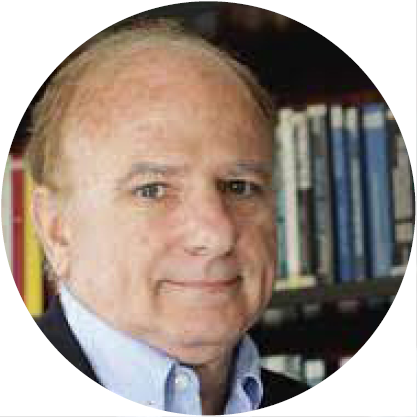
Aníbal Ollero
Head of the Robotics, Vision and Control Laboratory (GRVC), University of Seville
Dr. Javier Alonso-Mora is an Associate Professor at the Cognitive Robotics department of the Delft University of Technology, where he leads the Autonomous Multi-robots Laboratory. He is a Principal Investigator at the Amsterdam Institute for Advanced Metropolitan SolAníbal Ollero received his Electrical Engineering degree and the Doctor Engineer degree with award from the University of Seville. He worked in an engineering office and was assistant professor at the University of Seville (1976-1980). Later he was full professor at the Spanish Universities of Santiago de Compostela in Vigo, Málaga and Sevilla. In Vigo he was Associate Professor and Full Professor. He also was Director of the Department of “Electrical, Computers and System Engineering” and Secretary and Research Vice-Director of the Engineering School. In Málaga he was Full Professor, Director of the Engineering School and Head of the Departments of “Computer Science and Engineering”, ” Electronics, Automation and System Engineering”, and “System Engineering and Automation”. He has been also “stagiere” at the Laboratoire d’Automatique et d’Analyse des Systemes(LAAS-CNRS),Toulouse, France (1979), and visiting scientist (1990-1991) at the ” Robotics Institute”, Carnegie Mellon University, Pittsburgh, USA. Since December 1992 he is Full Professor at the University of Seville where he has been Vice-Director of the Engineering School. He is currently leading GRVC with more than 70 members at the School of Engineeringand the Association of Research and Industrial Cooperation of Andalucía (AICIA). He is currently Scientific Advisor of the Center for Advanced Aerospace Technologies (CATEC) with more than 70 members and has been Scientific Director of this Center.
He researched in autonomous aerial systems, robotics and automation, presenting the results in more than 560 PUBLICATIONS, including papers in journals (128), book chapters (38), and Conference Proceedings. He is author or co-author of 8 books including a book on computer control “Premio Mundo Electrónico” (Spanish Award), a book on robotics, the book “Intelligent Mobile Robot Navigation” (Springer, 2005), a book on “Teleoperation and Telerobotics” (Pearson- Prentice Hall, 2006) and a book on autonomous and distributed systems for applications on vehicles and natural environments (2008). Furthermore, he is editor or co-editor of 12 books including Multiple Heterogeneous Unmanned Aerial Vehicles (Springer, 2007, translated to Chinese in 2012), with 9 Chapters being co-author of 6, and “Cooperating Objects and Wireless Sensor Networks” (Hermes, 2007) with 6 Chapters being co-author of 3 Chapters.
He has led or participated in more than 140 research and development PROJECTS, including 24 projects funded by the European Commission and other projects funded by NASA, the Spanish National Research Program, the Regional Research Program, and many institutions and companies.
He has been coordinator of the successful European projects “Real-time coordination and control of multiple heterogeneous unmanned aerial vehicles” (COMETS) in the 5th Framework Programme, with 7 partners from 5 countries, and “Platform for Autonomous self-deploying and operation of Wireless sensor-actuator networks cooperating with AeRial objEcts” (AWARE), in the 6th Framework Programme, with 8 partners of 5 European countries, that were evaluated as excellent achieving all his objectives. Recently, he has been associated coordinator of the Network of Excellence on Cooperating Objects (CONET).utions ( AMS Institute) and co-founder of The Routing Company. He is actively involved in the Delft robotics ecosystem, including the Robotics Institute, the Transportation Institute and Robovalley.
Before joining TU Delft, Dr. Alonso-Mora was a Postdoctoral Associate at the Computer Science and Artificial Intelligence Lab (CSAIL) of the Massachusetts Institute of Technology (MIT). He received his Ph.D. degree in robotics from ETH Zurich, where he worked in the Autonomous Systems Lab, and in partnership with Disney Research Zurich. Dr. Alonso-Mora holds a Diploma in Engineering and a Diploma in Mathematics from the Technical University of Barcelona ( UPC), where he was part of the Interdisciplinary Higher Education Centre (CFIS) and the Robotics Institute (IRI).
His main research interest is in navigation, motion planning and control of autonomous mobile robots, with a special emphasis on multi-robot systems, on-demand transportation and robots that interact with other robots and humans in dynamic and uncertain environments. He is the recipient of multiple prizes and grants, including an ERC Starting Grant (2021), the ICRA Best Paper Award on Multi-robot Systems (2019), an Amazon Research Award (2019) and a talent scheme VENI award from the Netherlands Organisation for Scientific Research (2017).
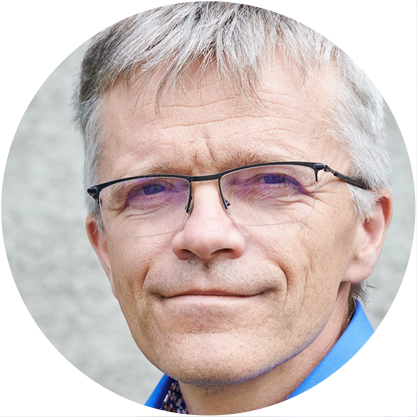
Tomáš Svoboda
Head of the Department of Cybernetics, CTU in Prague
Tomáš Svoboda is currently full Professor and the Chair of the Department of Cybernetics, Faculty of Electrical Engineering, Czech Technical University in Prague. He serves as the Director of Cybernetics and Robotics PhD study program, and he is also on the Board of the Open Informatics programme. He received the Ph.D. degree in artificial intelligence and biocybernetics from the Czech Technical University (CTU), Prague, Czech Republic, in 2000. He spent three post-doctoral years with the Computer Vision Group, ETH Zurich, Switzerland. He has published articles on multicamera systems, omnidirectional cameras, image-based retrieval, learnable detection methods, and machine learning in robotic navigation. He has led CTU-CRAS-NORLAB team at the DARPA SubTerranean Challenge. His recent research interests include multimodal perception for autonomous systems, and related applications in the automotive industry.
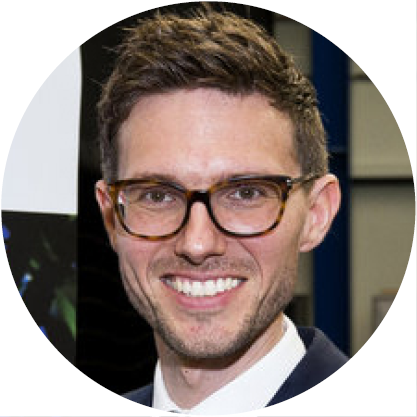
Guido de Croon
Full Professor, Delft University of Technology
Guido de Croon received his M.Sc. and Ph.D. in the field of Artificial Intelligence (AI) at Maastricht University, the Netherlands. His research interest lies with computationally efficient, bio-inspired algorithms for robot autonomy. Since 2008 he has worked on algorithms for achieving autonomous flight with small and light-weight flying robots, such as the DelFly flapping wing MAV. In 2011-2012, he was a research fellow in the Advanced Concepts Team of the European Space Agency, where he studied topics such as optical flow based control algorithms for extraterrestrial landing scenarios. After his return at TU Delft, his work has included fully autonomous flight of a 20-gram DelFly, a new theory on active distance perception with optical flow, and a swarm of tiny drones able to explore unknown environments. His research on autonomous swarms of tiny drones first focused on providing the basic capabilities for the swarm members to localize with respect to each other. Recently, this research has expanded to navigating in unknown environments with the help of bug algorithms, and performing complex tasks such as gas source localization. Currently, he is Full Professor at TU Delft and scientific lead of the Micro Air Vehicle lab (MAVLab) of Delft University of Technology.
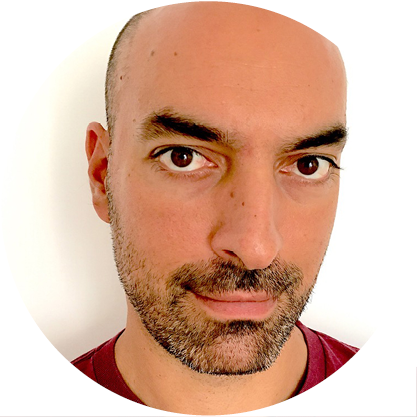
Vito Trianni
Senior Researcher, Istituto di Scienze e Tecnologie della Cognizione
Vito Trianni studies collective behaviour and distributed cognition, applying the insights from biological systems to the engineering of artificial ones. In particular, he works with robot swarms and he participated to the most important European projects in the field, namely Swarm-bots and Swarmanoid.
His research interests span over self-organisation, complex systems, collective adaptive systems, swarm robotics and evolutionary robotics. The latter subject has been his main research focus in the past. Otherwise, he mainly studies distributed cognitive systems in general, and swarm robotics systems in particular.
His research team focuses on a variety of collective systems composed of interacting agents, spanning from neurons/neuroglia in the brain to people in a crowd, from insects in a colony to robots in a swarm. The overarching aim is to understand how cognitive processes like attention, decision making or categorisation emerge in a system from the numerous interactions among the system components, possibly organised in complex network topologies. The insights gathered in this endeavour are exploited to synthesise cyber-physical systems like robot swarms and cognitive radio networks to optimally deal with the complexity inherent to real-world applications.
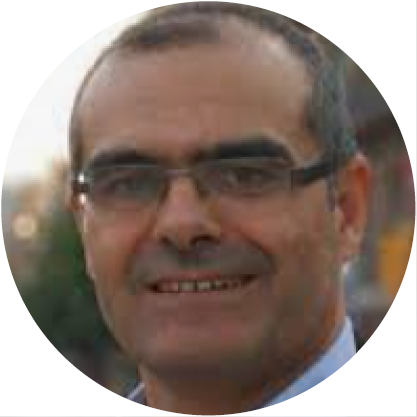
Lino Forte Marques
Professor, University of Coimbra
Lino Marques received the Ph.D. degree in Electrical Engineering from the University of Coimbra, Portugal, in 2005. He is Associate Professor at the Department of Electrical and Computer Engineering at the University of Coimbra and Senior Researcher at the Institute of Systems and Robotics, where he heads the Field Robotics group. He has been Principal Investigator of his research team in several European projects. He is Editor-in-Chief for Robots and Multi-Robot Systems of the International Journal of Advanced Robotic Systems. His primary research interest is in mobile robot olfaction, although he has concurrent research in multiple robotics sub-areas, including multi-robotic systems, robotics for hazardous environments and field and service robotics.
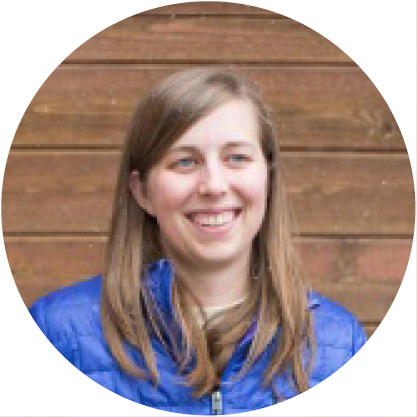
Alyssa Pierson
Professor with the Department of Mechanical Engineering, Boston University
Alyssa Pierson is an Assistant Professor with the Department of Mechanical Engineering at Boston University. Prior to that, she was a research scientist working for Professor Daniela Rus at MIT. She received her PhD in Mechanical Engineering from Boston University in January 2017, and was a visiting student at Stanford University during 2016. She joined BU in May 2012 to work in the Multi-Robot Systems Lab with Prof. Mac Schwager. Her research interests are focused on the coordination and control of multi-robot systems, particularly in heterogeneous groups.
Prior to starting graduate school, she worked for several years at Cobham, plc in the Graduate Development Program. This rotational program gave her experience in both engineering and project management at the industrial level. She received her Bachelor’s degree in Engineering from Harvey Mudd College in 2010.
In her free time, she is an avid skier, cyclist, SCUBA diver, and photographer.
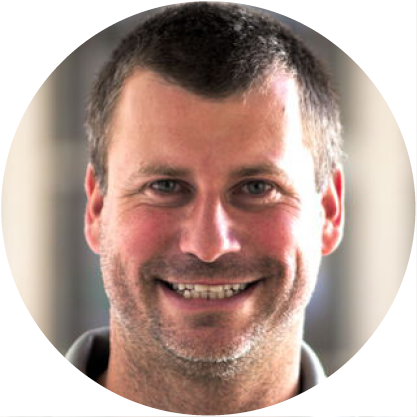
Martin Saska
Head of the Multi-Robot Systems Group, FEE CTU
Martin Saska is the founder and head of Multi-robot Systems lab at Czech Technical University in Prague (https://mrs.felk.cvut.cz/) and a co-founder of The Center for Robotics and Autonomous Systems with more than 70 researchers cooperating in robotics (https://robotics.fel.cvut.cz/cras/).
Martin received his Ph.D. degree at University of Wuerzburg, Germany, within the PhD program of Elite Network of Bavaria, 2009. He was a visiting scholar at University of Illinois at Urbana-Champaign, USA in 2008, and at University of Pennsylvania, USA in 2012, 2014 and 2016, where he worked with Vijay Kumar’s group within GRASP lab.
Martin is an author or co-author of >150 publications in peer-reviewed conferences with multiple best paper awards and more >50 publications in impacted journals, including IJRR, AURO, JFR, ASC, EJC, with >5500 citations indexed by Scholar and H-index 41. His team won multiple robotic challenges in MBZIRC 2017, MBZIRC 2020 and DARPA SubT competitions.
Visit
All AeroSTREAM Summer Schools
Explore
What We Do
Custom Drones
We custom-build ready-to-fly fully autonomous drones that can be adjusted for any application and industry.
Development & Prototyping
We design and develop advanced autonomous aerial systems to meet the particular needs of our individual clients.
Research Projects
We participate in many projects in various fields financed by the EU and Czech Republic, as well as private research institutions.

